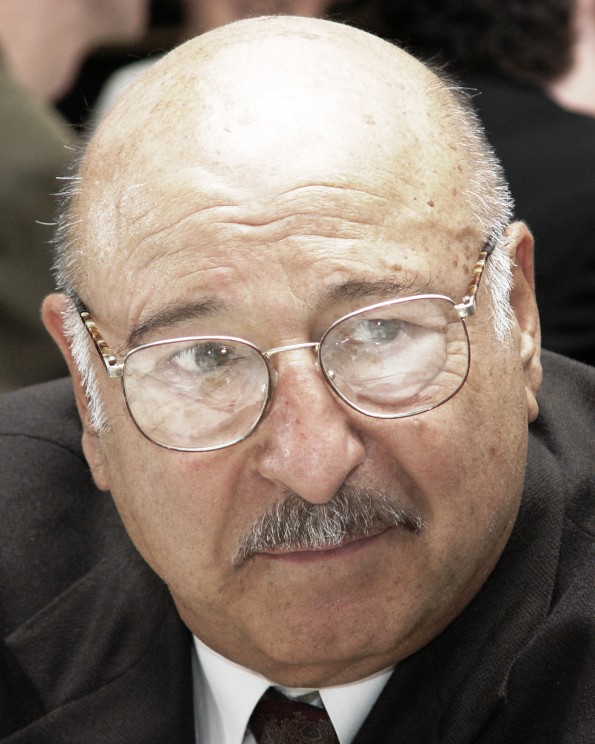

Uncategorized
Milton Klein 1929-2016

I’ve recently come to realize that you can never have too many fathers. Milton Klein was my third father, and my last.
Every dad brings something new and worthwhile into your life. Milton brought an intense interest in world events—whether they were political events, natural, technological, or accidental events—and their impact on humanity, on humankind.
In this way, Milton was a lot like one of my many grandmothers, the one named Evelyne.
With Milton, though, it wasn’t just that he was curious about events in the world. More than that, he worried about them.
I met Milton in 1986—thirty years ago—soon after Karen and I started dating. At the time, if my memory is right, Milton was worried about Chernobyl. Well, fine, everyone was worried about Chernobyl.
(Now, I should point out that Milton also worried that I wouldn’t be able to care for his daughter when she had the flu. Here I am, rushing to Karen’s bedside, the devoted boyfriend, but Milt and Roz are already there, with the vaporizer, the chicken soup. Feeling pretty pleased with themselves.)
Anyway … Karen and I still got married, in 1987. When we got back from our honeymoon, Milton was worrying about “Black Monday,” the October stock market crash.
In 1989, Matthew was born. Milton was worrying about the long-term effects of the Exxon Valdez oil spill. He was overjoyed about his first grandchild, until he heard about the Tiananmen Square massacre, but he cheered up later in the year when the Berlin Wall came down.
When Zoë joined our family in 1994, Milton was worrying about genocide in Rwanda and ethnic cleansing in Bosnia. He welcomed Zoë home at about the same time that Nelson Mandela became president of South Africa. Soon after, Milton began to worry again, about Newt Gingrich and the Republicans taking over Congress.
And on it went.
The thing is, all the worrying, all the anxiety, it bound us together, Milton and me—the fraud and hype of the dot-com bubble, the fathomless disaster of the George W. Bush years—and soon enough, I started to worry about world events too.
We would sit and have these long conversations about the news of the day. The kind of conversations that would end with Karen coming in and saying, “you two finished saving the world yet, or what?”
We were not finished.
Well, that’s it, then, Milton. You were the last dad standing. I love you, buddy. I love you, even if you left me here to worry about Donald Trump all by myself.
A theory of Presidential lying (part 1)
| First of all, fuck PolitiFact. Facts are binary. Politics are manifold. |
All politicians lie. And usually, when politicians lie, what they lie about is the necessity, rationale or purpose of some public policy that they support. Particularly when a President lies, the only citizens who get angry are those who disagree with the policy—the policy whose actual necessity, rationale or purpose the lies are intended to keep hidden. Citizens, and especially political elites, who agree with the policy implicitly endorse the President’s lies as necessary to convince an unsophisticated, insufficiently farsighted, or selfish public.
Two examples:
- Bush: “Saddam Hussein has attempted to purchase high-strength aluminum tubes suitable for nuclear weapons production.”
- Obama: “If you like your health care plan, you can keep it.”
Elite supporters of the Iraq invasion and Obamacare, respectively, knew that the President was lying, but cared more about getting the policy enacted than they cared about the truth. This was because the necessity, rationale or purpose of the policy, from the elite supporters’ perspective, was fundamentally not a necessity, rationale or purpose that could be sold to the American public. Citizens, by and large, were uninterested in sending our troops to the Middle East to eliminate a potentially threatening (but for the moment purely local) tyrant, just as they were uninterested in sacrificing their own privileges in order to provide all Americans with universal health insurance coverage. In both cases, the President’s elite supporters had a more “enlightened” view, but one that dared not speak its name.
A President tells whoppers because political elites want him to tell whoppers, as a means of enacting a policy they support. And this drives opponents of the President’s policy crazy, not least because the lies do the job of convincing the public and, instead of the President being punished for lying, the lies only make him appear more successful. The President’s policy may ultimately fail, but usually not because the President lied about its necessity, rationale or purpose. More often, it’s because the policy’s actual, hidden necessity, rationale or purpose—the perspective of the President’s elite supporters—itself turns out to be wrong or unachievable in practice.
The Iraq invasion failed because we were not, in fact, greeted as liberators. It didn’t matter that Saddam wasn’t really trying to produce nuclear weapons. If Obamacare fails, it will be because large numbers of disadvantaged Americans continue to have inadequate health insurance coverage. It won’t matter that those insured prior to Obamacare really weren’t able to keep their plan of choice.
My conclusion: political lying—at least at the Presidential level—is not only costless, but greatly enhances a President’s rhetorical and persuasive powers in a deeply divided country. It also works to the manifest advantage of political elites. But then again, what doesn’t?